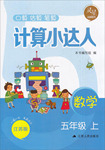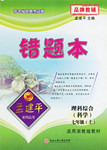题目内容
She _________ high and tries hard to make her dream come true.
A. achieves B. reaches C. misses D. aims
练习册系列答案
 灵星计算小达人系列答案
灵星计算小达人系列答案 孟建平错题本系列答案
孟建平错题本系列答案
相关题目
题目内容
She _________ high and tries hard to make her dream come true.
A. achieves B. reaches C. misses D. aims
 灵星计算小达人系列答案
灵星计算小达人系列答案 孟建平错题本系列答案
孟建平错题本系列答案